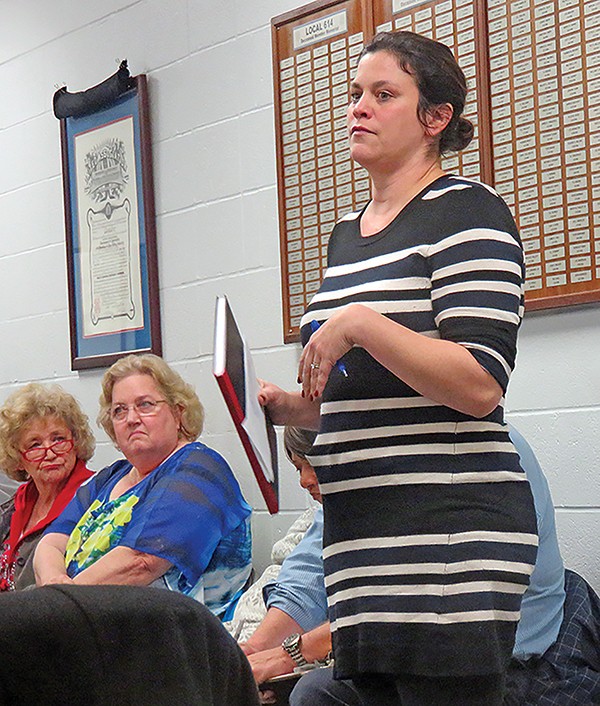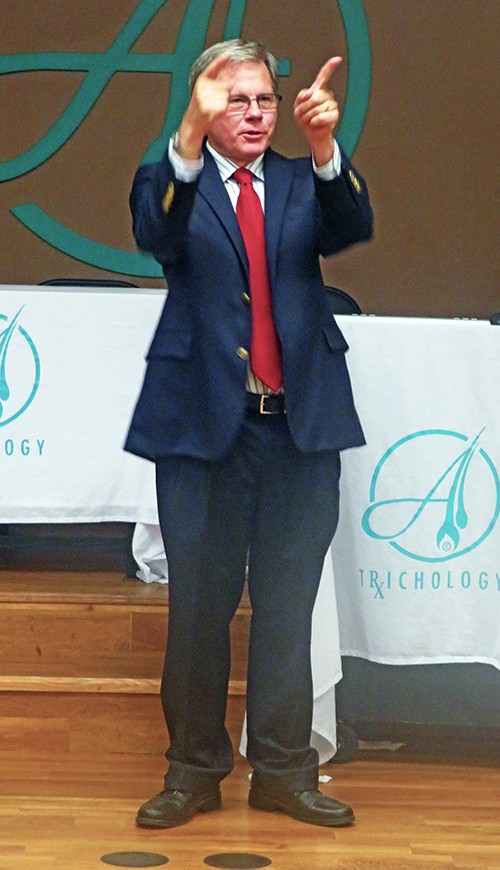A statement made by state Senator Mark Norris (R-Collierville) in Nashville last week all but put the Senate Majority Leader in the running for the governorship in 2018.
Norris, who for years has made no secret of his gubernatorial ambitions, told reporters that he was “more than mulling” about a race and was actively making plans, though he emphasized that he still had a job to attend to in the legislature. He later told the Flyer that he had discussed organizational plans with a local campaign consultant but had not yet finalized a deal.
Norris, as a sitting state legislator, is prohibited from active fund-raising for the duration of the current session of the General Assembly, just convened. So are two potential rivals for the Republican nomination, state Senator Mark Green (R-Clarksville), who has declared his intentions of running, and Beth Harwell (R-Nashville), speaker of the state House of Representatives, who held a recent pre-session fund-raiser at $2,500 a head.
Other Republicans known to be considering a race are Nashville industrialist Bill Lee and Randy Boyd, who just announced that on February 1st he would take leave of his current position as state commissioner of Community and Economic Development.
Though most attention has so far been focused on the possible GOP candidates, there are no fewer than four Democrats who are considered possible entrants in the governor’s race, as well.
One is wealthy real estate tycoon Bill Freeman of Nashville, who has served as the state Democratic Party’s treasurer and for years has been a major donor to numerous Democratic campaigns and causes. Freeman, who ran unsuccessfully for Nashville mayor in 2015, made a trip to Memphis last year on behalf of Hillary Clinton‘s presidential campaign that doubled as a fund-raiser for state Senator Lee Harris (D-Memphis) and functioned also as a scouting expedition for a governor’s race.
Former Nashville Mayor Karl Dean has traveled widely in the state after leaving office and is thought to be serious about a governor’s race.
Two other Democrats frequently mentioned as possibilities are state House Minority Leader Craig Fitzhugh (D-Ripley), a highly regarded party figure who would also have to vacate his legislative seat to make the race, and Chattanooga Mayor Andy Berke, a former state senator who is now running for reelection.
• Shelby County Commissioner Terry Roland, who has taken the lead in trying to create a seat for suburban Shelby County on the MLGW board, has switched tracks on that initiative. Confronted by city of Memphis resistance and stymied by a split between city and county members from including the matter in the county commission’s official legislative request package, Roland wants to put the matter before the Tennessee Regulatory Authority.
Meanwhile, state senators Norris and Ron Lollar (R-Bartlett) are studying the option of taking the matter up legislatively.
Commissioner Heidi Shafer, a supporter of Roland’s initiative, said the matter wasn’t dead but was sure to surface again, “when the weather for it is right.” (See Editorial, p. 10.)
Even if the issue of county participation on the MLGW board ended up not being a part of the official county wish list approved by the county commission for its legislative package, other once controversial matters have apparently made the package.
Foremost among them is a call for a limited but profound change in the status of marijuana. In the language of the final commission resolution: “The Shelby County Board of Commissioners urges the Tennessee General Assembly, Governor Bill Haslam, and the federal government to authorize medical marijuana in Tennessee.” There are at least two bills to that effect already introduced in the General Assembly, both from mainstream members of the Republican super-majority.
A concomitant resolution by the commission reads: “The Shelby County Board of Commissioners urges the Tennessee General Assembly and Governor Bill Haslam to implement or expand a second-chance program for individuals using less than half an ounce of marijuana.”
These are first steps, to be sure, but meaningful ones that could not have been anticipated even a few short years ago.
[UPDATE: The words “have apparently made the package”in the paragraphs about the Commission’s attitude toward medical marijuana and second-chance legislation were, as it turms out, premature. In committee action on Wednesday, sponsor Terry Roland successfully moved for a deferral on voting for those parts of the legislative package.]
• Memphis Congressman Steve Cohen joined civil rights icon John Lewis (D-GA) and what may be a substantial number of other political figures in announcing Monday that he will not attend the Friday inauguration of Donald Trump as President.
Cohen, who has represented the 9th District since 2006, made the announcement Monday morning at Mason Temple of God in Christ during a commemorative celebration on MLK Day.
Telling the Flyer that a series of insulting tweets from Trump about Lewis became “the straw that broke the camel’s back,” Cohen praised the Georgia congressman as someone who had “risked his life” for human rights, adding that Trump’s attacks on Lewis were particularly egregious coming on the eve of the Martin Luther King weekend. Cohen cited “an accumulation of distressing remarks, actions, and appointments” on Trump’s part, including “his questioning President Obama’s birth, the racist, misogynistic statements he made during the campaign, his inability to tell the truth, and his mocking of a disabled person,” as well as the President-elect’s attacks on Senator John McCain and actress Meryl Streep.
“This is a president who does not act presidential.” Cohen said. Cohen said further he had attended confidential briefings about Trump’s compromised behavior and circumstances and said that “there’s more to it than Russia.”
 Jackson Baker
Jackson Baker  JB
JB